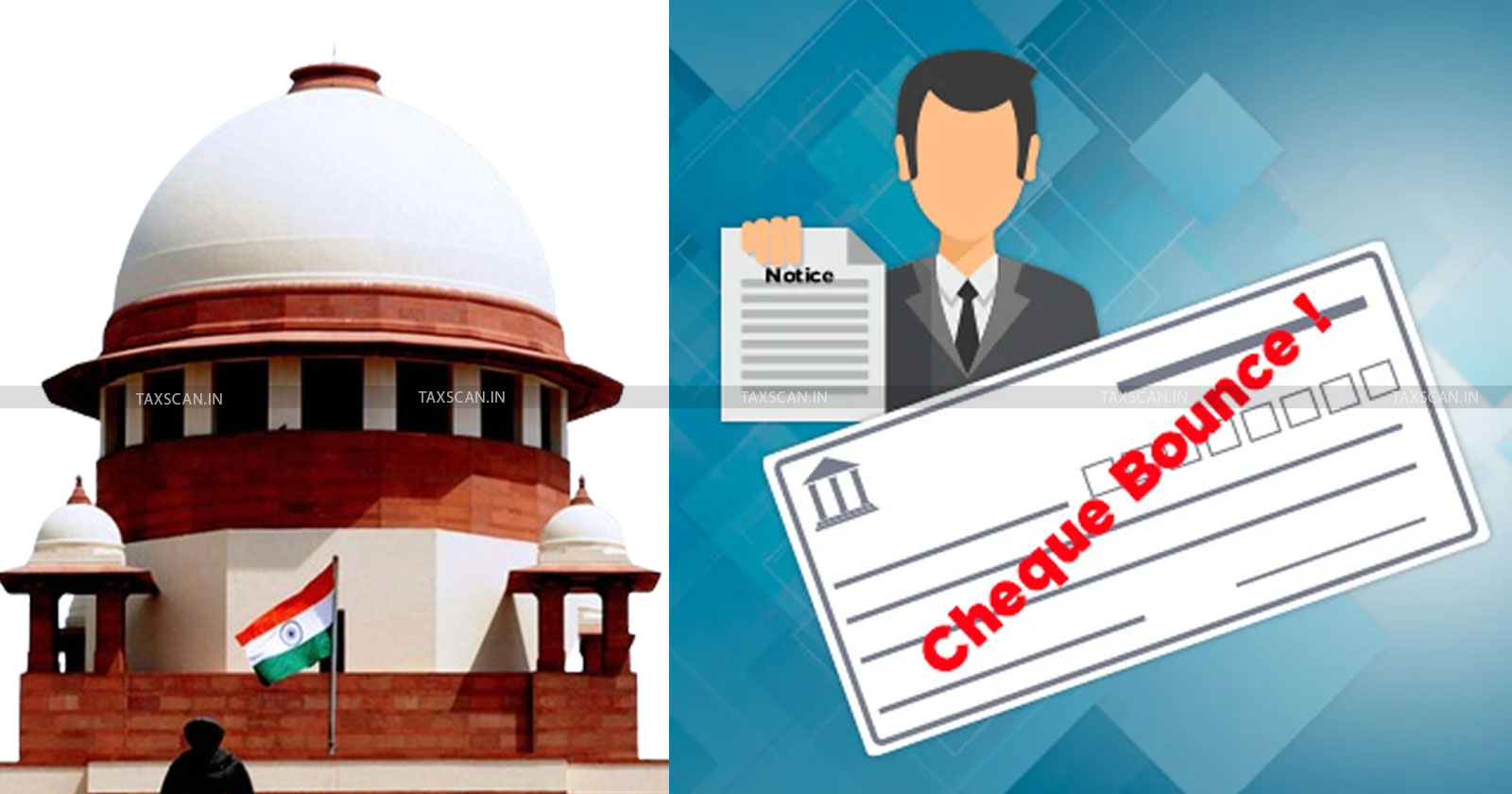[BREAKING] No Quashing of NI Act S.138 Cheque Bounce Case by HC u/s 482 CrPC without Consent of Complainant: Supreme Court [Read Judgement]
As per the impugned judgement the High Court, apparently, exercised the inherent power under Section 482, Cr.P.C., coupled with those under Section 147, N.I. Act

Supreme Court – Section 138 Negotiable Instruments Act – Section 138 NI Act – Cheque Bounce – taxscan
Supreme Court – Section 138 Negotiable Instruments Act – Section 138 NI Act – Cheque Bounce – taxscan
The Supreme Court recently held that High Court is bereft of the power to quash a case under Section 138 of the Negotiable Instruments Act, using the powers inherent to it under Section 482 of the Code of Criminal Procedure, 1973, as long as there is no consent from the complainant.
The appellant filed a Complaint Case alleging commission of offence punishable under Section 138 of the Negotiable Instruments Act, 1881 ( NI Act ) against the respondents.
Ready to Grow? Choose a Course That Fits Your Goals!
On receipt of the summons, the respondents appeared before the Court and expressed their readiness to settle the matter by effecting the payment. An application to permit to compound the offence was filed under Section 320 of the Code of Criminal Procedure, 1973.
The Trial Court had dismissed the same as per order dated 06.02.2023. Aggrieved by the order of the Trial Court, respondents took up the matter before the High Court challenging the order dismissing the application for compounding the offence under Section 138, N.I. Act also seeking quashing of and all further proceeding thereon.
Ready to Grow? Choose a Course That Fits Your Goals!
As per the impugned judgement the High Court, apparently, exercised the inherent power under Section 482, Cr.P.C., coupled with those under Section 147, N.I. Act.
The High Court had held that, “the present petition is allowed and the offence of the petitioners/ accused persons in Complaint Case No.5564/2022 titled A.S. Pharma Pvt. Ltd. vs M/S Nayati Medical Pvt. Ltd. & Ors. pending before the learned Trial Court is hereby compounded, albeit subject to the petitioners depositing before the concerned learned Trial Court the cumulative cheque(s) amount of Rs.6,50,000/- (Rs. Six Lakhs fifty thousand only) with 12% simple interest per annum thereon from the date of cheque(s) return memo i.e. 18.03.2020 till the date of actual payment of the amount as also a sum of Rs.1,00,000/- Rs. One Lakh only), within a period of eight weeks. Needless to mention, the amount, if any, already deposited before the learned Trial Court be adjusted in the aforesaid sum(s). The respondent/complainant is free to move an appropriate application for release of the amount deposited before the learned Trial Court in above terms.”
Ready to Grow? Choose a Course That Fits Your Goals!
The core contention of the appellant was that an offence under Section 138 of the N.I. Act is not compoundable under Section 320 Cr.P.C., and in such circumstances, the application was rightly dismissed by the Trial Court. It was observed that, invoking the power under Section 482 Cr.P.C., coupled with those under Section 147, N.I. Act, the High Court ought not to have compounded the offence without the consent of the appellant.
The Supreme Court Bench of Justices C T Ravikumar and Sanjay Karol noted that, “High Court entertained the challenge against the order rejecting an application for compounding the offence under Section 138, N.I. Act filed under Section 320 Cr.P.C., the High Court actually compounded the offence invoking its inherent power under Section 482 Cr.P.C., coupled with the power under Section 147 of the N.I. Act.”
Ready to Grow? Choose a Course That Fits Your Goals!
It was also observed that, “ Thus, a bare perusal of Section 482, Cr.P.C., and Section 147, N.I. Act would reveal they are different and distinct. The former being the inherent power of High Court exercisable even suo motu to give effect to any order under Cr.P.C., or to prevent abuse of the process of any court or otherwise to secure the ends of justice. However, the provision for compounding every offence punishable under the N.I. Act, under Section 147, N.I. Act, is not a power available to a Court to exercise without the consent of the complainant.”
It was thus held by the Supreme Court that, “the High Court had clearly fallen in error in invoking the power under Section 482, Cr.P.C., as also the power under Section 147, N.I. Act, to compound the offence under Section 138 of the N.I. Act qua the respondent-accused.”
Ready to Grow? Choose a Course That Fits Your Goals!
Hence, the impugned judgment to the extent that it compounded the offence under Section 138, N.I. Act invoking the inherent power under Section 482, Cr.P.C. and the power under Section 147, N.I. Act was quashed and set aside by the Apex Court.
To Read the full text of the Judgement CLICK HERE
Support our journalism by subscribing to Taxscan premium. Follow us on Telegram for quick updates


